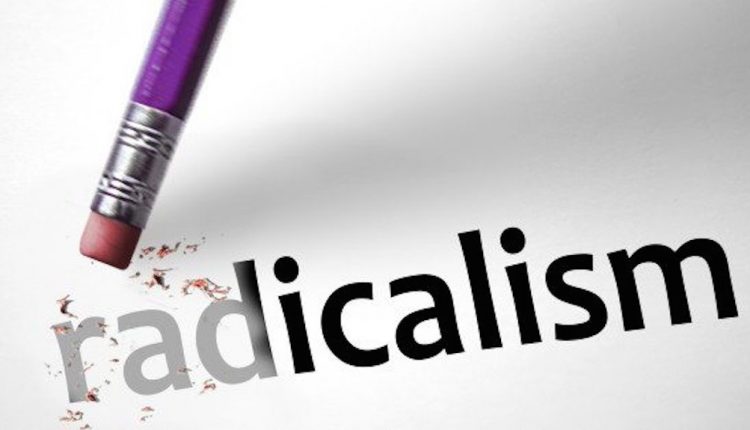By: Alif Fikri)*
Radicalism is still a frightening specter in Indonesia, especially since radical groups work in a guerrilla way, especially on social media. To counteract radicalism, it is necessary to carry out anti-radicalism and terrorism education.
Indonesia is a democratic country but there are radical groups and terrorists who are trying to establish the caliphate and displace Pancasila. Their actions cannot be justified and they are considered as traitors to the country. However, the terrorists became increasingly violent, and on October 25, 2022, members of a radical group were determined to attack with firearms, in front of the State Palace.
The terrorist attack was surprising because Indonesia had been calm for several months, without any attacks or threats of bombs or firearms. When there is an attack, there is a warning that eradicating radicalism must be even more serious. Don’t let radicalism and terrorism eat away at the minds of the people, especially young people, because they are the future leaders.
The Coordinating Minister for Politics, Law and Security, Mahfud MD, stated that radicalism with its various threats must be wary of. Radicalism is an understanding in which the right ideology is its own. To ward off radicalism, the way to start is from educational institutions.
In a sense, every educational institution must teach material on anti-radicalism and the cultivation of Pancasila. If children are taught how to ward off radicalism and recognize the characteristics of terrorism from an early age, then they will understand and not be influenced by the enticements of terrorist groups. Especially now that radical and terrorist groups are spreading in cyberspace and are looking for new, young cadres.
To instill anti-radicalism in educational institutions, it is necessary to introduce material on radicalism and how to deal with it, in the latest curriculum. Students do not only learn about important dates in Indonesian history. But they also learn why Indonesia is a democracy, not liberal or radical.
Democracy has become an understanding that is very suitable to be applied in Indonesia because the people are given the opportunity to voice and object when there are regulations that are felt to be inappropriate. Indonesia is a country consisting of many different tribes, backgrounds, and beliefs, united in nationalism. Differences in democracy do not matter, because they respect each other.
If students learn that since independence in 1945 Indonesia is a democratic country, then they understand that radicalism is wrong. The reason is because radical groups have never participated in the struggle against the colonialists in the colonial period. However, they entered Indonesia and wanted to abolish democracy and establish a caliphate state.
The students will understand why the khilafah that is proud of by radical groups cannot be applied in Indonesia, because it is not compatible with the conditions of a pluralistic society. The Khilafah is only suitable for countries with homogeneous societies, such as in the kingdoms of the Middle East. However, for a pluralist country like Indonesia, it would not be suitable.
Then, the students also learn how to recognize the characteristics of radical groups. For example, always be proud of the caliphate and breathe the promise of heaven. They also tend to be closed, rigid, and blame the government (no matter what the regulations are, they will be cursed at). Radical groups are also rebelling and some don’t believe in pandemics and vaccinations.
Meanwhile, scholar Nazzarudin Umar stated that there was no radicalism in history. The reason is because the prophet himself never used coercion and violence as practiced by radical groups. In a sense, radical groups can no longer argue that their teachings are true, because the prophets never did this, who always spoke softly.
A teacher should teach anti-radicalism in schools, by telling the Prophet’s preaching of non-violence, so that he cannot be associated with radical groups and terrorists. So far, what radical groups have done has gone wrong because they forced their will. They also carried out various acts of violence and threats with firearms, even bombings.
If the students are told that way, then they understand that there is no connection between radicalism and the history of their beliefs. Radical groups are wrong for committing violence, which is not in line with state law or religious law.
Students will understand the dangers of radicalism and its characteristics, so they will not be easily persuaded by the boasts of radical and terrorist groups. Radical groups, which already have many accounts on social media, failed to get new cadres from among young people. The students recognized the terrorist’s social media account and reported it to the cyber police and BNPT.
To counteract radicalism, the way to do this is by adding an anti-radicalism curriculum in each educational institution, from the lowest to the highest level. Students must be taught how to identify radical and terrorist groups, and how to avoid them. They will become anti-radical and report the terrorist group, so that the cyber police can arrest them.
)* The author is a contributor to the Nusa Bangsa Institute
